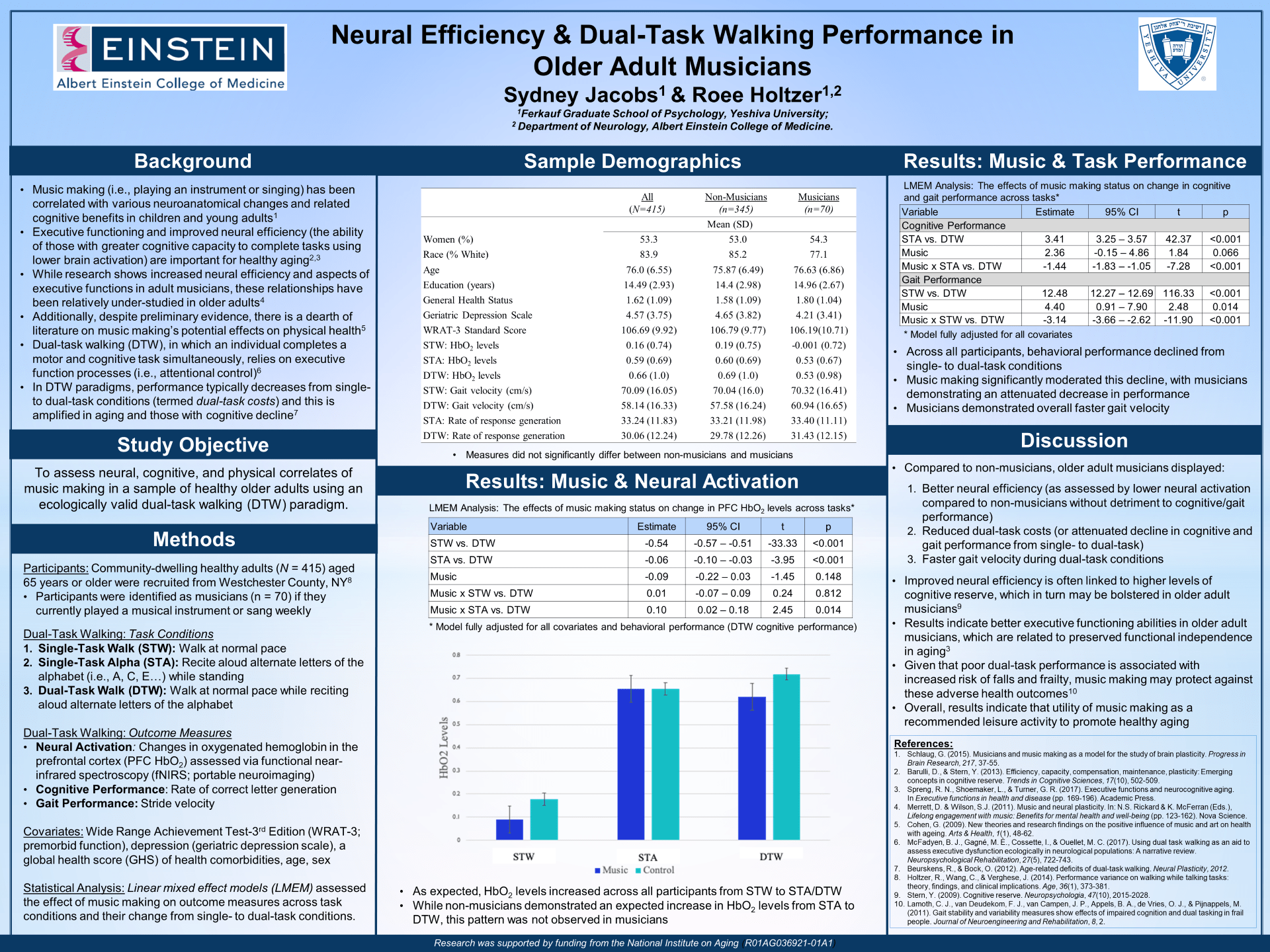Scientific Abstract
Background: Music making is linked to improved cognition and related neuroanatomical changes in children and adults; however, this has been relatively under-studied in aging. The purpose of this study was to assess neural, cognitive, and physical correlates of music making in aging using an ecologically valid dual-task walking (DTW) paradigm.
Methods: Study participants (N=415) were relatively healthy adults aged 65 years or older, including musicians (n=70) who were identified by current weekly engagement in musical activity. A DTW paradigm consisting of single and dual-task conditions, as well as portable neuroimaging (functional near-infrared spectroscopy), was administered. Outcome measures included neural activation in the prefrontal cortex assessed across task conditions, cognitive performance, and gait velocity. Linear mixed effects models examined the impact of music making on outcome measures in addition to moderating their change from single- to dual-task conditions.
Results: As expected, neural activation increased from single- to dual-task conditions (p < 0.001) across participants (53.3% women; 76±6.55 years old); however, musicians demonstrated attenuated activation between a single cognitive interference task and dual-task-walking (p=0.014). Additionally, while behavioral performance declined from single- to dual-task conditions, as anticipated, this decrease was significantly attenuated in musicians, as shown in analyses of both cognitive performance (p < 0.001) and gait velocity (p < 0.001). Finally, the main effect of music on gait velocity was significant, with musicians demonstrating faster gait across task conditions (p=0.014).
Conclusions: Given evidence of lower prefrontal cortex activation in the context of similar or improved behavioral performance, results indicate the presence of enhanced neural efficiency in older adult musicians. Furthermore, better dual-task performance in older adult musicians was observed. Results have important clinical implications for healthy aging, as executive functioning (of which dual-tasking is a distinct facet) plays an essential role in maintaining functional ability in older adulthood.
Search posters

